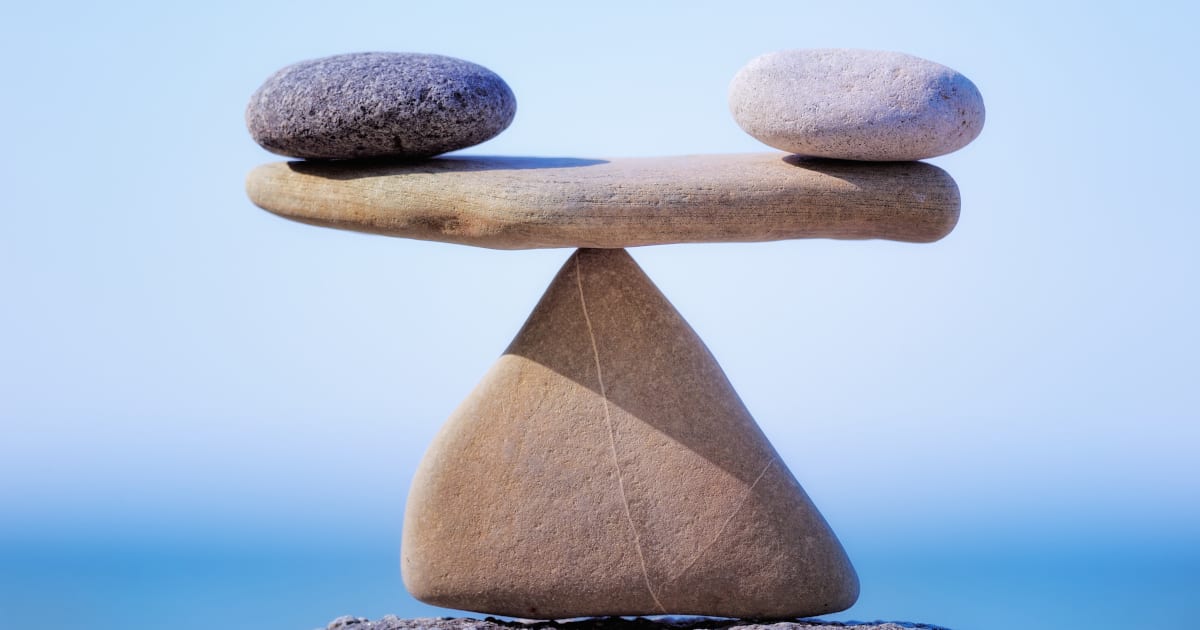The current COVID-19 pandemic has been a significant adjustment for everyone worldwide and has increased stress levels. These stresses include, but are not limited to, financial and personal ones and have disrupted our notion of work-life balance (1). There is additional fear regarding one’s own health as well as the health of family members. Positivity, wellness, and mental health are paramount at this time. It is for this reason that the Integrative Medicine Committee of the ACAAI has put together some recommendations with best practices that we hope will help you and your allergy and asthma patients who are stressed about COVID-19 and its impact on their chronic conditions.
Chronic stress has been linked to inflammatory responses, which can aggravate known disease or contribute to the development of new ailments over time. During this time of isolation and separation, mental wellness includes optimizing social interaction, sleep, nutrition, exercise and mind-body medicine (2). These tools can help overcome stress by achieving improved physiologic and psychologic responses, and, in particular, benefit conditions related to asthma and allergies.
Sleep
Sleep deprivation activates the sympatho-adrenomedullary system, stimulating the release of catecholamines. Chronically elevated cortisol and adrenaline drive the stress response, which can suppress the immune response, limit tissue repair, and reduce memory consolidation and cognitive function (3). As practitioners, it is important that we are aware of overreliance on sleep medications. Asking patients about sleep and use of sleep medications should be considered at every patient encounter.
- Try for 6-8 hours of sleep in a 24-hour period and keep a regular sleep-wake schedule; If there is a need to nap, the nap should be approximately 20 min.
- Reduce light exposure 30 minutes prior to going to bed to reduce alertness and, if possible, switch electronics to “Night” or “Do Not Disturb” Mode.
- Reduce caffeine, alcohol, and large meals prior to bedtime. While exercise is great, avoid vigorous exercise within a few hours of bedtime.
- Practice routines promoting a relaxing behavior, such as a bath or shower, which promote peripheral vasodilation.
- When unable to sleep, consider soothing music or even tools found in online apps such as Headspace or CBT-I Coach that can provide tools for relaxation and sleep without screen time.
Nutrition
Our diet can be affected by our mental health. We know stress can lead to emotional and binge eating, which can then cause an increase in obesity. The projection is that this pandemic will further increase rates of obesity in our country (4). Excessive consumption of alcohol and caffeine may have further harmful effects.
- Meal planning and preparation. If you are going into the office, try to bring your own meals. Even if at home, plan your meals with a healthy mix of fruits, vegetables and proteins. When eating, take a few moments to be seated and eat methodically while chewing and enjoying your food!
- Hydrate with water and non-caffeinated beverages throughout the day. Keep a refillable water bottle in your work area and keep drinking throughout the day.
- Excessive dairy and processed grains can contribute to excessive mucus (5). Of course, any foods that cause allergies or intolerances should be avoided.
Exercise
Physical exercise has long been associated with improved mental health and well-being. With the closure of and potential anxiety around the safety of returning to gyms and fitness centers, people have lost their normal mechanisms of exercising.
- Perform fitness activities at home or outside. Even if at work or working from home, take a 5-minute break on the hour when you can walk/stretch your legs.
- Any amount of physical activity is better than none at all, and at least 30 minutes of moderate vigorous activity is ideal. If you are able, consider walking or safely biking to work.
- Get some sunlight throughout the day. This can have both health benefits (exposure to Vitamin D) and be invigorating.
- With heavy pollen counts in many areas, make sure to wear a mask when outdoors (which is recommended for slowing the spread of COVID). Showering after outdoor exercise can also help reduce pollen found in the hair.
Mind-Body Medicine
There are many tools in the mind-body stress reduction (MBSR) databank, which are readily available and not difficult to employ. For example, meditation, yoga and Qi Gong are ancient practices that are readily accessible through myriad online apps and websites. Simple introductions to these practices are ideal ways to get started and do not require a specific spiritual practice.
- Stretching exercises in the morning and throughout the day can be helpful for the body and to calm the mind. For those seated throughout the day (including kids), gentle “chair yoga” exercises may be particularly helpful.
- Humor has been suggested as a way to combat feelings of anxiety and depression (2). This can be done with appropriate social distancing (memes, texts) or even laughter yoga.
- Meditation has long been used as a practice of relaxing and controlling the mind. Guided imagery is a similar practice using contemplative images as a calming method.
Reaching Out for Help
Engaging in social or spiritual activities with friends, family and neighbors via the internet (or other creative socially distanced ways) can be useful to create a sense of community and reduce feelings of isolation. Doing a good deed for a friend, family member or neighbor in a safe manner can reflect the human spirit and also be gratifying.
- Share your feelings with friends, family and loved ones. This also presents a chance to spend quality time with children, spouses and other family members.
- Reconnecting with hobbies such as reading or journaling can be powerful and relaxing tools to maintain balance.
- Having children of all ages at home may present additional stress (1). It’s that much more important to maintain your and their normal daily routines established prior to the COVID-19 pandemic as much as possible.
- Seek help. If you are suffering from anxiety, depression, or other symptoms of anger, frustration or isolation, seeking professional help is vital. Many mental health providers are offering support online or by telephone, including support for those who work in the health care system and are faced with elevated pressures/challenges amid the pandemic.
News/Media
Attempt to focus on the positives of every situation and maintain a sense of hope. The news media is inundated with stories regarding morbidity and mortality rates, public response and politics regarding the COVID-19 pandemic. Limiting one’s consumption of these negative and critical stories can be helpful. Taking breaks during the day from electronic devices can also be beneficial.
- Limit reading/listening to the news to once or twice a day for key updates.
- Focus on what you can control to keep yourself and family safe. Continue aggressive hand washing, maintain appropriate social distancing and follow recommendations from trusted sources including the CDC and ACAAI!
- Pace yourself! Keep a balanced daily schedule, making sure you have a specified time for work and a hard stop allowing you to spend time with family/friends and enjoy leisurely activities.
Acknowledgements
We’d like to thank the ACAAI Integrative Medicine Committee for their work in developing this article. A special thanks to Payel Gupta, MD, Dipa Sheth, MD, Puneet Shroff, MD, Anil Nanda, MD, Maeve O’Connor, MD and William Silvers, MD for reviewing the available literature, identifying the best practices and developing content for this article.
References
- Bansal P, Bingemann T, Greenhawt M, Mosnaim G, Nanda A, Oppenheimer J et al. Clinician Wellness During the COVID-19 Pandemic: Extraordinary Times and Unusual Challenges for the Allergist/Immunologist. J Allergy Clin Immunol Pract 2020, in press.
- Nanda A, Wasan A, Sussman J. Provider health and wellness. J Allergy Clin Immunol Pract 2017; 5: 1543-8.
- Foster, Russell G. Sleep, circadian rhythms and health. Interface Focus. 1020190098. http://doi.org/10.1098/rsfs.2019.0098
- Rundle, Andrew G., Park, Yoosun, Herbstman, Julie B, Kinsey, Eliza W. Y. Wang, Claire. COVID-19 Related School Closings and Risk of Weight Gain Among Children. Obesity, 2020; DOI: 1002/oby.22813
- Horwitz R. Integrative Medicine for Respiratory Conditions: Asthma and Chronic Obstructive Pulmonary Disease. Med Clin North Am. 2017 Sep;101(5):925-941. doi: 10.1016/j.mcna.2017.04.008. Epub 2017 Jun 21.
Resources: Wellness, Positivity, and Mental Health During the COVID-19 Pandemic
Meditation apps
- Headspace – free for clinicians
- Calm
- Insight Timer
Exercise
- Peleton is offering free access to their app with lots of exercises that can be done at home.
Yoga
- Cosmic Kids – great for kids yoga
- Corepower Yoga – free on-demand yoga and sculpting videos


